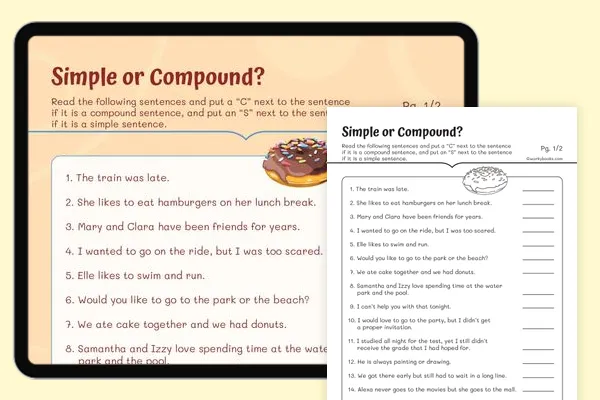Parts of Speech Functions in Sentences Game
- 3
- L.3.1.A
- L.3.1
- L.4.1.A
This learning resource is available in interactive and printable formats. The interactive worksheet can be played online and assigned to students. The Printable PDF version can be downloaded and printed for completion by hand.
CONTENT PREVIEW
ABOUT PARTS OF SPEECH FUNCTIONS IN SENTENCES GAME
This engaging digital activity helps third-grade students master the essential components of grammar by identifying and understanding the functions of different parts of speech in sentences. Through interactive multiple-choice questions, students learn to distinguish between nouns, pronouns, verbs, adjectives, and adverbs while understanding their specific roles in sentence construction.
LEARNING OUTCOMES
- Identify different parts of speech in sentences
- Understand the function of nouns as naming words
- Recognize pronouns and their role in replacing nouns
- Identify verbs as action words
- Understand how adjectives describe nouns
- Learn how adverbs modify verbs
Tags
parts of speech, nouns, pronouns, verbs, adjectives, adverbs, grammar practice, sentence structure, language arts, elementary grammar
Perfect For:
- • Interactive classroom activities
- • Auto-graded game assignments
- • Student engagement tools
- • Fun learning at home
- • Educational screen time
- • Progress tracking
- • Interactive curriculum
- • Self-paced gaming
- • Engaging practice
























